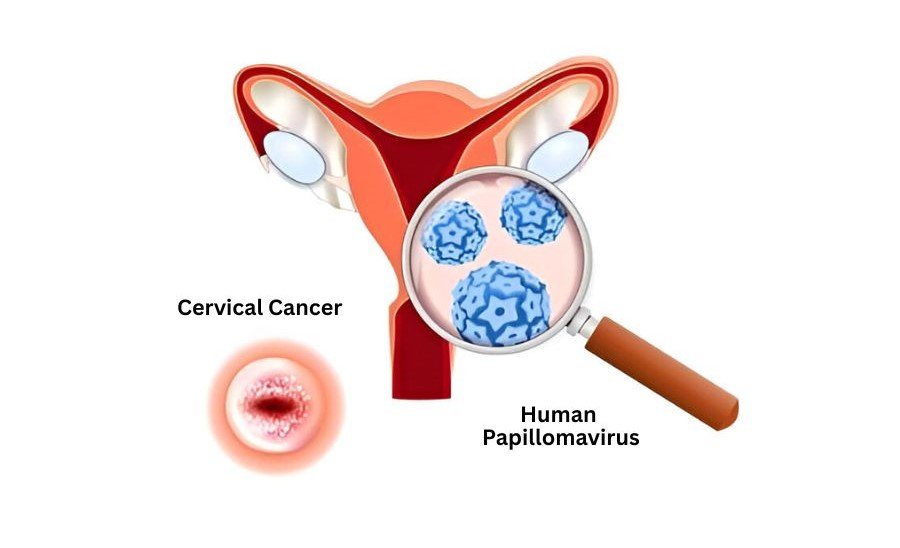- dr.amruta17@gmail.com
- Sri Sri Holistic hospital
- +91-8297358725
Cervical Cancer Treatment by Dr. Amruta Jaiswal
Cervical cancer is a type of cancer that occurs in the cervix, which is the lowest part of the uterus. It refers to a malignant tumour of the cervix. Most cervical cancer cases are linked to a high-risk virus known as human papillomavirus (HPV), which is generally transmitted through sexual contact.
In many cases, women who have HPV show no symptoms, and the infection often resolves spontaneously. This occurs because the body's immune system usually prevents the virus from causing harm. However, in some individuals, the virus persists for years, which can lead to cervical cells becoming cancerous.

The type of cervical cancer will help to determine the treatment and prognosis. There are two types of cervical cancer. These include:
Cervical Cancer when diagnosed at an early stage generally has no symptoms or signs. Whereas, some symptoms of advanced cervical cancer that are observed in patients can include:
If you have any of the above symptoms that concern you make sure you immediately make a call to contact your doctor.
Cervical Cancer in a body begins when the healthy cells of the cervix undergo mutations in their DNA. A cell's DNA consists of certain instructions that help the cell to function.
Healthy cells tend to multiply and grow at a certain rate, and they end up dying together. Hence, during cervical cancer because of the mutations the cells multiply, grow out of control, and don't end up dying. These cells start to accumulate and form a tumour. Cancer cells can break off from a tumour and spread to other parts of the body.
It is known that one of the main causes of cervical cancer is HPV. It is a common type of virus. However, most people with this virus don't develop cancer. This means that there are other factors involved in the development of cervical cancer. This can include your lifestyle choices and the environment in which you're living.
Certain risk factors involving cervical cancer include:
Although rare, certain prevention steps can be taken care of. These include:
Dr. Amruta Jaiswal and her well-trained team are dedicated to supporting patients through the entire process of diagnosis. If cervical cancer is suspected, the diagnostic process begins with a thorough examination of the cervix using a colposcope. A colposcope is a special magnifying instrument used to detect abnormal cells. During this examination, the doctor collects tissue samples using:
These tissues will then be further examined for malignancy. If the tissues are malignant, then our experienced doctors may suggest imaging tests to stage cancer.
Dr. Amruta Jaiswal offers a comprehensive range of treatments for cervical cancer, including surgery, tracheostomy, targeted therapy, and immunotherapy. The treatment approach depends on several factors such as the stage of cancer, the patient's overall health, and personal preferences.
Those who are diagnosed with an early stage of cervical cancer can be treated through surgery. The type of surgery will completely depend on the size of the tumour and the stage of cancer. Some of the options can include:
Targeted Therapy refers to targeted drug treatments that focus on certain weaknesses which are present in the cancer cell. Targeted drug treatments block these weaknesses and cause cancer cells to die. This therapy is generally combined with chemotherapy and can be an option for advanced cervical cancer.
This is a drug treatment that will strengthen the immune system to fight cancer cells. The immune system may not be able to fight cancer cells, since these cells produce proteins that are undetectable by the cancer cells. Therefore, immunotherapy interferes with this process.
Dr. Amruta Jaiswal provides comprehensive diagnostic and treatment services in the field of oncology, with a focus on cervical cancer. Supported by a well-trained multidisciplinary team, she ensures that patients receive personalized care throughout the entire treatment journey. Out-of-hospital support is also available to help patients maintain comfort and confidence during recovery. Using state-of-the-art equipment and advanced surgical techniques, Dr. Jaiswal is committed to helping patients achieve the best possible quality of life.